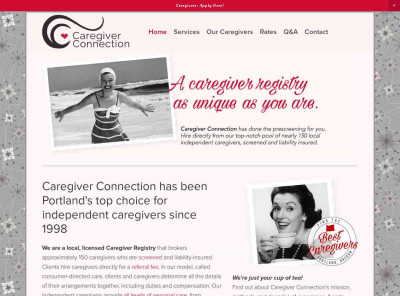
Joining a support group offers you the opportunity to share ideas with people in the same situation.
Caregiver connect aurora trial#
People are complicated and taking care of a loved one is successful through trial and error. These groups ensure that you have the chance to take a break, express your feelings, and find new ways to cope. If you've felt mentally drained or depressed, participating in a caregiver support group could make a world of difference in your mood.

Taking the time out of your day to do something good for your mental health is a great way to take back some control over your life. It's easy to lose yourself when your life revolves around someone else. You can even discuss coping mechanisms with each other to see what others are doing to manage their stress. You may feel like you're the only person in the world facing the challenges of caregiving, but you can find comfort in knowing that there are others who are experiencing similar situations. Caregiver support groups are the perfect opportunity to de-stress. A build-up of frustrations and feelings is normal, but at some point, those need to be released and discussed. Stress is a part of life, but it shouldn't take over. Over 70% of adults admit to feeling stressed every day. Caregiver support groups provide you with a network of people who are in similar situations and will not only validate your feelings but offer comfort and a sense of community. The people you do interact with may not understand what you're going through. Spending day after day looking after the same person may cause a sense of disconnect from other family, friends, and acquaintances. These groups exist to provide a space to connect with others, feel supported, and help reduce your stress from caregiving.

That's why caregiver support groups are so helpful. Being a caregiver can be incredibly fulfilling, but it can also feel isolating and exhausting because you are giving so much time and energy to your loved one. Each year, over 34 million Americans provide care to a loved one over the age of 50. Caregiving can take you through a rollercoaster of emotions, but it's important to remember that you're not alone.


 0 kommentar(er)
0 kommentar(er)
